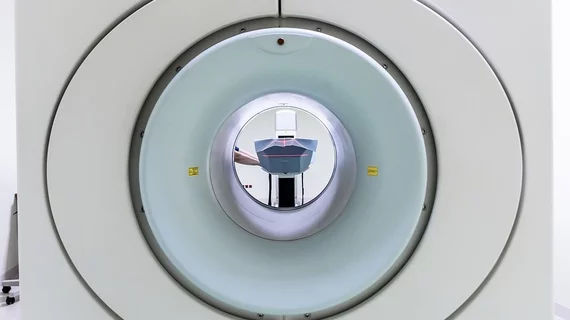Arizona State University home to new 9.4T cryogen-free MRI system
Arizona State University is now home to a highly-advanced 9.4-Tesla cryogen-free high-field imaging system that's being used to support its medical imaging research efforts.
The scanner was recently installed at the Tempe, Arizona, campus by MR Solutions and is being managed by the ASU BioSciences Core. The superconducting system will provide soft-tissue contrast in tissue microenvironments and bolster the university's continued pursuit of early disease detection.
The scanner has various field capabilities including 9.4T, 7T and 3T, and is said to be compatible with simultaneous PET/MRI as well.
In addition to its multi-field potential, the scanner also utilizes a cryogen-free, dry magnet technology. This innovative technology removes the need for liquid helium and liquid nitrogen that most MRI systems require to cool down. In turn, the machine is much smaller and lighter than a traditional scanner, so it can be installed in more compact spaces.
“The MR Solutions multi-field Powerscan MRI system will fill a critical need for a state-of-the-art preclinical MRI facility at ASU and accelerate cutting-edge basic and translational research in neuroscience, cancer, tissue engineering, metabolism, and drug discovery for scientists at ASU and the region,” Vikram Kodibagkar, associate professor with ASU’s School of Biological and Health System Engineering, said in a statement.
MR Solutions has completed more than 2,000 installations across the world and has received the Queen’s Award twice for their innovations.

